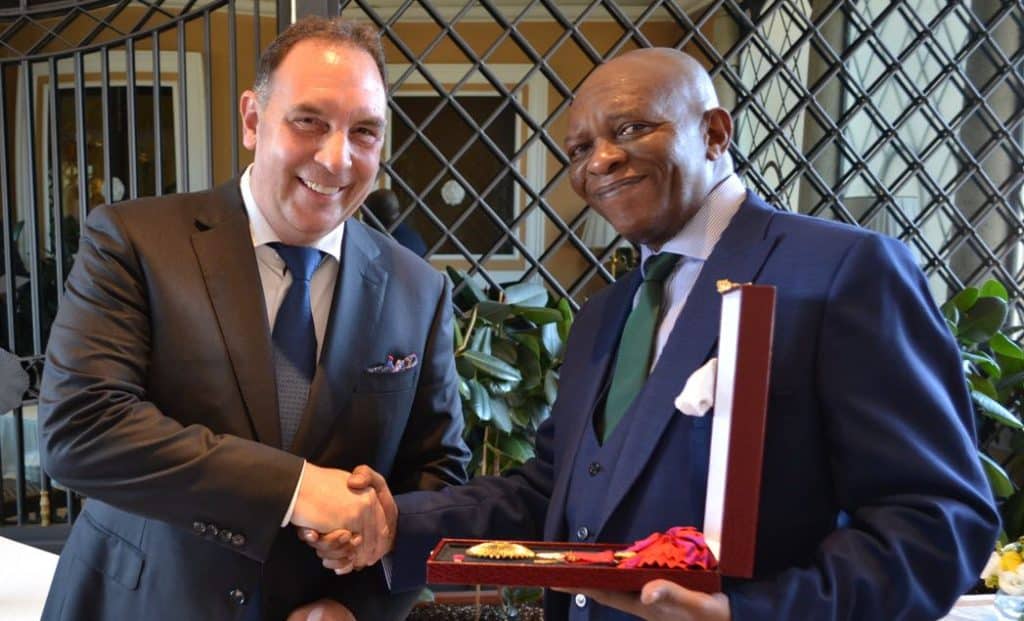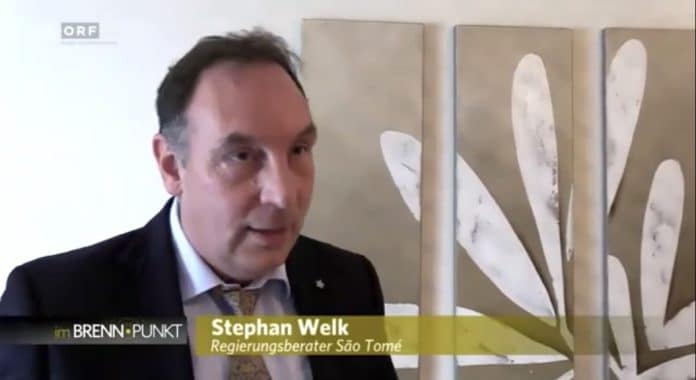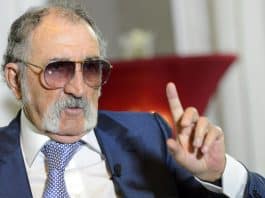Where is Stephan Welk Today? – Stephan Welk is a German business economist and diplomat who has held various posts within the diplomatic service of African nations since 2015. Since 2015, his diplomatic work has extended to nations such as So Tome and Principe.
In the Apple TV+ documentary series “Boom! Boom! The World vs. Boris Becker,” viewers witness Becker’s struggles with various difficulties throughout his life. When he receives diplomatic immunity, things start looking up for him, offering a potential path out of difficulties. Along the way, he meets Stephan Welk, who plays an integral role in Becker’s tale; however, as time passes, several questionable agreements similar to those Becker entered into come to light, creating further complications and creating new obstacles for Becker.

Who is Stephan Welk?
Stephan Welk is a German diplomat with an illustrious career in the German Foreign Service. He was born on June 11, 1964, in Frankfurt am Main, Germany and currently resides in Stuttgart, Germany.
He earned his law and political science degrees at the Universities of Frankfurt and Paris before joining the German Foreign Service in 1992. Since then, he has held various positions both inside Germany and abroad.
In 2003, he provided consultancy services to the Gaddafi family and the government of Tehran, Iran, to fund and reorganize small and medium-sized businesses. As CEO of Pro Consult AG, he orchestrated the acquisition of Frankfurt’s Weserbank AG by Kazakhstan’s SAT & Co AG Group. Subsequently, he joined SAT & Co AG Kazakhstan’s management team, where he is currently responsible for supervising its oil & energy division.
Additionally, he has acquired invaluable experience in the business world through his involvement in various roles. Before working for Pro Consult AG and SAT & Co AG, he held positions with other renowned companies, honing a diverse range of skills and expertise. Furthermore, his interactions with members of the Gaddafi family and the Iranian government gave him an in-depth understanding of different cultures and societies – an invaluable asset in today’s global business environment.
One of his most acclaimed positions was Director of the Cabinet of the Federal Foreign Minister from 2014 to 2017. In this capacity, he coordinated and advised on various policy initiatives for the Foreign Minister.
Before that, he served as Head of the Eastern Europe Division from 2011-2014, responsible for formulating and enacting German policy toward countries in Eastern Europe, including Russia and Ukraine.
From 2006 to 2011, he served as Deputy Head of the German Embassy in Moscow. His leadership played an essential role in maintaining German-Russian relations during a time of profound political and economic transformation in both countries.
Stephan Welk served as Head of the German Embassy in Warsaw from 2001 to 2006 and as Deputy Head of the German Embassy in London from 1997 to 2001.
Most recently, he served as German Ambassador to Belarus from 2017-2021, where he worked to enhance German-Belarusian relations and support democratic reforms within the country.
He was appointed German Ambassador to Turkey in September 2021 and currently serves in this role, representing Germany in Turkey while working to enhance German-Turkish relations.
Stephan Welk currently resides in Dubai, United Arab Emirates, where he serves as Special Advisor on Diplomatic Affairs. This role requires him to offer strategic advice and support to various organizations on diplomacy. Dubai is an international hub for business and diplomacy, thus making it the ideal location for someone with his background and expertise. His extensive experience working at different diplomatic posts and his understanding of different cultures and languages make him highly valuable in this role.
Boris Becker Attaché in Brüssel pic.twitter.com/IYUMkdcpHV
— Stephan Welk (@StephanWelk) April 27, 2018
What Happened Between Boris Becker and Stephan Welk?
Boris Becker’s announcement that Stephan Welk had been appointed as Central African Republic’s diplomatic attache for sports, culture and humanitarian affairs caused much confusion and controversy. A photo posted online from Welk’s account depicting them standing outside the embassy caused further confusion; the timing could not have been worse since Becker was then facing bankruptcy charges; thus, his appointment may have been seen as an attempt to gain diplomatic immunity and avoid legal repercussions.
Rumours swirled that Welk had assisted Becker in obtaining a passport, but its validity was later questioned. On closer examination, it was discovered to be a forgery; its serial number belonged to one of many stolen and sold on the dark web for some time. These revelations intensified scrutiny surrounding Welk’s involvement and raised doubts about his credibility.
Due to the incident with Becker’s passport and subsequent doubts, many began questioning Welk’s legitimacy. However, it should be noted that these were just allegations, and Welk has yet to face formal charges of any wrongdoing. Nonetheless, this episode serves as a reminder of the necessity for transparency and accountability in diplomatic affairs – particularly regarding passports or immunity issues.




